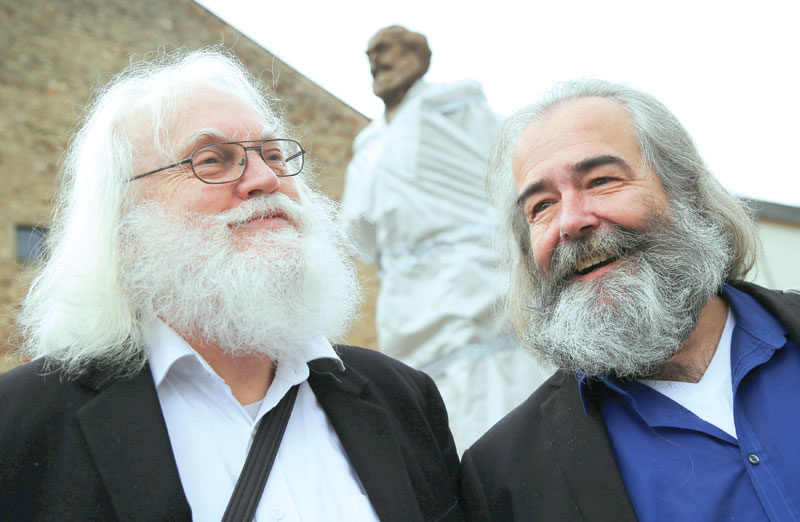

With Saturday marking the 200th anniversary of his birth in Germany, Karl Marx remains one of history’s most influential and controversial figures. However, with capitalism still alive and kicking — 150 years after Marx predicted its downfall in the book “Das Kapital” — how many of the theories put to paper by the bearded philosopher are still regarded relevant by today’s economists?
ALIENATION: The worker is foreign to the ever expanding output oft heir labour, which is used to exploit them and heighten the private property of capital owners.
“Capitalism tends to commercialize everything and this, in turn, is the starting point for profound alienation processes. It also explains today’s widespread longing for authenticity,” says Gustav Horn, director of the Institute for Macroeconomics at the pro-trades union Hans Boeckler Foundation. In his book “Capital in the 21st Century,” the well-known French economist Thomas Piketty agrees with Marx, concluding that wealth is concentrated at the top of society, where it is already abundant.
However, Michael Huether, director of the Institute for the German Economy (IW) in Cologne, disagrees. “The concept of alienation has historically been overtaken by collective bargaining autonomy and social partnership, dual vocational training and stability of the standard employment relationship.”
MASS POVERTY: Wages can not exceed the level of subsistence and the army of poorly paid or unemployed proletarians is constantly growing. “The market economy has managed to bring broad sections of the population to prosperity in western countries,” says Commerzbank chief economist Joerg Kraemer. The spreading prosperity in many Asian countries also goes back to the market economy, says Kraemer. Marx’s teachings, he agrees, have raised awareness of the need for basic social protection. “Marx rightly addressed the misery of workers in the 19th century.”
FALL OF CAPITALISM: Marx believed this to be an inevitable development, a “natural law”. Dekabank chief economist Ulrich Kater points to the adaptability of capitalism: “Despite all its problems, market economies — together with the economic activity of the states — have the opportunity and the ability to meet today’s challenges of inequality and structural change.”
RELEVANCE: “For economics today, the theories of Karl Marx are meaningless,” argues economist Volker Wieland. “His predictions of economic development have been refuted by actual developments.”
However, other experts disagree. “He lived in times that were very similar to ours,” says Dekabank’s Kater. “Just as jobs in industrial sectors today are threatened by increasing automation, so was the agricultural sector then.” — dpa
Oman Observer is now on the WhatsApp channel. Click here



